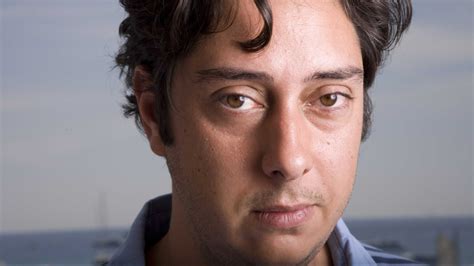A Quote by Ren Ng
I've always been very interested in the question of how computation can fundamentally advance the things that we can see. This led me to have a fascination with medical imaging, especially things like MRI and scanning, and eventually computer graphics.
Related Quotes
A lot of the medical imagery has to do with my own biography. I had open heart surgery, I had knee replacements, I had a hiatal hernia, etc. Every time you go for surgery, you get a whole spectrum of imaging. Of course, I've been doing research in imaging technology across the board for close to twenty years. When you think about it, medical imaging is actually quite new. The first major medical image was the x-ray in 1895. That was the first time you got imaging of anything that's in the bodily interior.
I was asking questions which nobody else had asked before, because nobody else had actually looked at certain structures. Therefore, as I will tell, the advent of the computer, not as a computer but as a drawing machine, was for me a major event in my life. That's why I was motivated to participate in the birth of computer graphics, because for me computer graphics was a way of extending my hand, extending it and being able to draw things which my hand by itself, and the hands of nobody else before, would not have been able to represent.
My mother was always expanding my art skills and getting me to paint different things. You always got to push some. And, I mean, I learned basic things like getting up on time, how to shop - you know, you don't touch things in a store you're not going to buy. These things were taught very young. I don't see today enough of this basic, you know, basic skill teaching.
I have not been diagnosed with epilepsy. I did have an MRI of the brain, and they found no abnormalities in my brain. Now, there are people with epilepsy who have completely normal MRI's, too. I just think also, you know, epileptic seizures can be triggered by emotional stress, by all kinds of things, lights.
Spend two minutes a day scanning the world for three new things you're grateful for. And do that for 21 days, The reason why that's powerful is you're training your brain to scan the world in a new pattern, you're scanning for positives, instead of scanning for threats. It's the fastest way of teaching optimism.


































